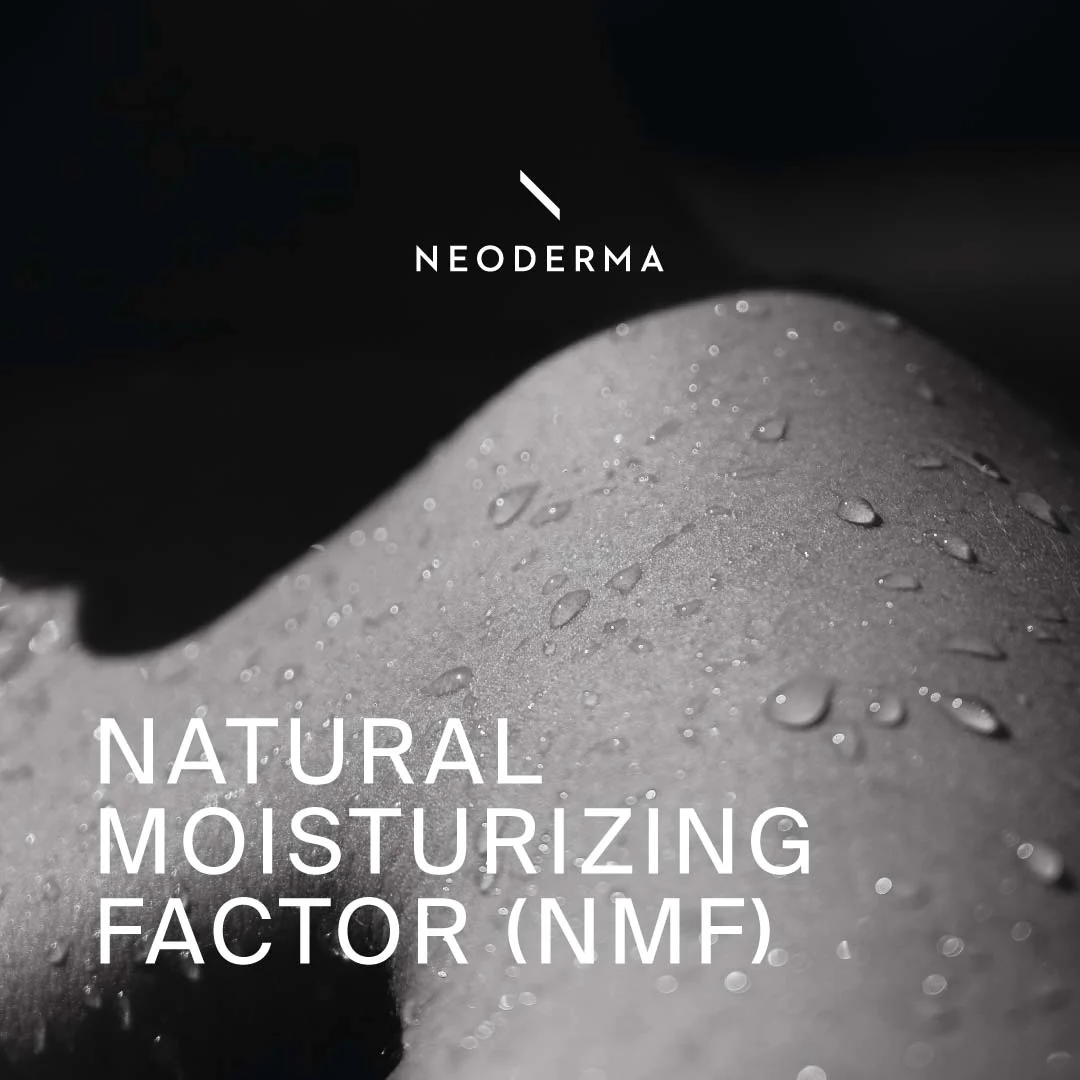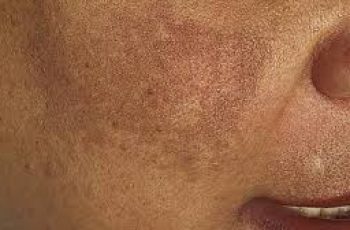![]()
What is a Natural Moisturizing Factor (NMF)?
Our skin is our largest organ and undoubtedly the hardest working one. Not only does it have to fight off everyday environmental stressors like pollution, UV rays and bacteria, it can also be affected by hormonal imbalances and show signs of this when we’re stressed, tired or unwell. All while protecting ourselves and our vital organs. I’m exhausted just thinking about it.
But what does this have to do with Natural Moisturizing Factors (NMFs)? What do they do for the skin? Let’s find out a little more!
What is a Natural Moisturizer?
Natural moisturizers are a system of skin that forms in the epidermis (the outer layer of the skin) that helps produce enough water to moisturize the stratum corneum (the outermost layer of the epidermis). It may sound simple, but NMFs play an important role in the overall health and well-being of the skin and protect it in a number of ways:
Supporting the Skin’s Protective Barrier
The skin needs a protective barrier to fight off everyday aggressors like free radicals. When this barrier is damaged or not working properly, it can lead to a host of issues with the skin. Signs of aging like fine lines and wrinkles become more noticeable, and the complexion appears dull, with uneven texture and pigmentation. When NMF keeps the barrier hydrated and working, your skin is protected from all of the above and all the cells underneath from possible infection, damage, and dryness.
Helps maintain skin elasticity
As we age, our skin’s elasticity decreases, making it more susceptible to damage and visible aging. The more elastin your skin has, the younger it looks. Luckily, NMF can maintain production to keep your face plump, hydrated, and youthful.
Helps remove dead skin cells
NMF activates hydrolytic enzymes that chop large molecules like dead skin cells into smaller pieces, making them easier to remove during the 30-day cycle when dead skin cells shed from the epidermis. The exfoliation process sometimes doesn’t go smoothly, and the accumulation of dead skin cells can lead to skin problems such as dry spots, blackheads, and blotchiness. Therefore, boosting this process by activating enzymes with NMF plays an extremely important role in skin function while keeping it radiant and healthy.
Here are three of the top benefits NMF can bring to your skin. You may find it interesting that your skin’s natural moisturizing factor is not just one substance, but is actually a complex mixture of moisturizing factors and powerful moisturizers. All of these substances are naturally present in the skin, and some of them can even be found in some of your favorite skincare products, such as hyaluronic acid. Learn more about this famous AHA in our dedicated blog post on the skincare benefits of hyaluronic acid and why it’s so good for your skin.
What does NMF do for your skin?
In addition to the above benefits of NMF, you’ll also find that it keeps your skin’s pH (basically, acidity) balanced. Our skin is typically acidic and can easily become unbalanced by many skin stressors that can penetrate the epidermis and cause a tsunami of damage. NMFs keep the skin’s acidity at the right level, thus protecting it.
What happens if your skin doesn’t have NMF?
Now that you have a better understanding of the role of NMFs, you probably know that any skin that lacks NMFs will suffer from constant dryness and dehydration, especially as you age and the epidermis begins to produce less NMFs.
Fortunately, the skincare industry has spent a lot of time and effort developing effective blends of ingredients that can mimic the same properties and moisturizing benefits of NMFs. Hyaluronic acid, urea, and lactates are some of the most popular and commonly used ingredients in skincare.
All skincare ingredients come with some side effects and risks that you need to consider when first introducing them into your routine. While lactates and ureas occur naturally in the skin, they are so potent that when added synthetically to a formula, dilution levels must be high to avoid skin reactions, irritation, or burns. When introducing products containing these ingredients into your routine, it’s best to perform a patch test 24 hours before applying them to your face. You can also seek the advice of a dermatologist if you’re still unsure.
Our skin works really hard every day, and it’s truly amazing. Especially with the daily struggles she has to endure in this modern world and our busy environment. Luckily, various labs are constantly conducting research and formulations to develop skincare products that protect and repair the skin just as well as NMFs do. Still, we wouldn’t say no to a trip to a tropical island to give our skin the rest it deserves!
DQH Can I use salicylic acid first and then vitamin C?
It’s easy to create a skincare routine, but knowing how to use it is another thing entirely. In most cases, if you’re not getting the desired skin results, it could be due to the layering of conflicting ingredients. So, is it possible that salicylic acid and vitamin C are such ingredients? Or are these active ingredients the duo that’s been missing from your skincare routine? If you want answers, stick around because today we are going to explain the benefits of salicylic acid and vitamin C and how they can be used in your daily life.
What are the benefits of salicylic acid for skin?
Salicylic acid is one of the most commonly used beta hydroxy acids and is favored by many people with oily, acne-prone skin. This acid is derived from willow bark, and unlike its water-soluble relatives (called alpha-hydroxy acids), salicylic acid is oil-soluble, which means it can penetrate deeper into the lower layers of the skin. Once it reaches the lower layers, it can help unclog pores of excess sebum, dirt, bacteria, debris, and impurities. This results in clearer skin tones and greater definition.
Not only does salicylic acid benefit the underlying layers, but the outer surface of the skin benefits as well. When applied to the skin, salicylic acid removes the buildup of dead skin cells. This is accomplished by breaking the bonds that hold dead cells to the surface. Over time, this can cause the complexion to look dull and prone to acne, blackheads, and other blemishes.
If you’d like to learn more about salicylic acid and how it can improve your skin, check out this dedicated blog post from a beauty insider.
What are the benefits of vitamin C for skin?
Vitamin C is considered one of the most powerful antioxidants, which means it is very effective at fighting free radicals and preventing them from causing further skin damage. Examples of free radicals include pollution, central heating, UV rays and harsh climate. They attack proteins, fats and cell membranes as soon as they come into contact with the skin, causing signs of premature aging such as fine lines and wrinkles as well as hyperpigmentation, flaky patches of skin and loss of elasticity.
Many people usually prefer to use vitamin C in their morning routine as this ingredient gives the complexion a radiant glow. You’ll also find that vitamin C can target areas of hyperpigmentation, plumping the skin and reducing the appearance of fine lines and wrinkles.
The thing about vitamin C is that there are a lot of outdated studies going back to the 1950s that describe vitamin C as an unstable skin component. Thanks to improvements in modern technology, this is no longer the case as all products now contain a stable form of vitamin C.
Visit The Beauty Insider to learn more about vitamin C. So please check out our blog post.
Can I use salicylic acid first and then vitamin C?
Yes, you absolutely can. In fact, it’s thought that using salicylic acid before using vitamin C ensures it penetrates faster and works faster.
This is an efficient way to utilize two power sources, and the reason has to do with pH. For example, the skin’s natural pH is about 4.7, making it slightly acidic. Salicylic acid and vitamin C are also both acidic, and you’ll find that vitamin C is absorbed quickly into the skin. Therefore, using salicylic acid beforehand can increase the acidity of the skin and allow vitamin C to penetrate into the skin faster.
While this is considered an effective way to combine two powerful ingredients, you need to be aware of your skin type and how it reacts to certain active ingredients. Even people with perfect, normal skin can experience skin sensitivity and irritation. Therefore, always consult a doctor or dermatologist before using any new products on your skin.
It’s also important to follow skin application rules. In this case, you need to use the product correctly to ensure you get the best results for your skin. If you’re not sure what I mean, the basic rule for skin is to start with the thinnest consistency and work your way up to the thickest consistency. This prevents a barrier from forming on the surface, preventing other active ingredients from penetrating the skin.
Can I use salicylic acid at night and vitamin C in the morning?
Yes, absolutely, this is considered the most effective way to get returns without any adverse side effects. This is because there is enough time between applications to ensure that the skin’s pH levels return to balance.
You’ll also find that Vitamin C is rich in antioxidants and is perfect for use in the morning to ensure your skin is protected and looking its healthiest. Due to the small size of salicylic acid molecules, it is an acid that is able to reach the deepest parts of the skin. While this is effective at keeping skin clear, it also increases the risk of irritation and photosensitivity. Therefore, many people prefer to use powerful BHAs in their evening routine without exposure to UV rays, pollution, or harsh weather.
Warning: If you avoid using sunscreen every day, none of these ingredients will do what your skin needs. The combination of chemical peels and powerful ingredients increases the risk of further damage to the skin’s surface. Use SPF 50 every day to keep your skin protected and your lipid barrier healthy, even on cloudy days, keeping your skin in top condition.



